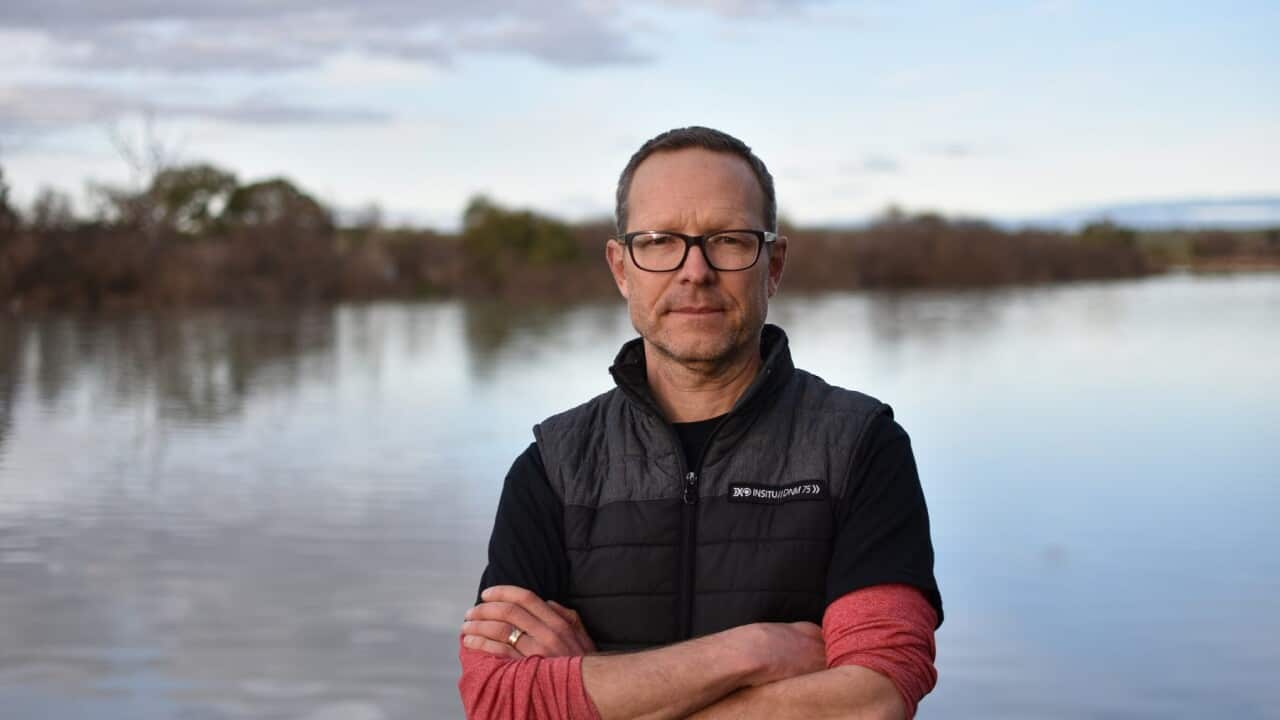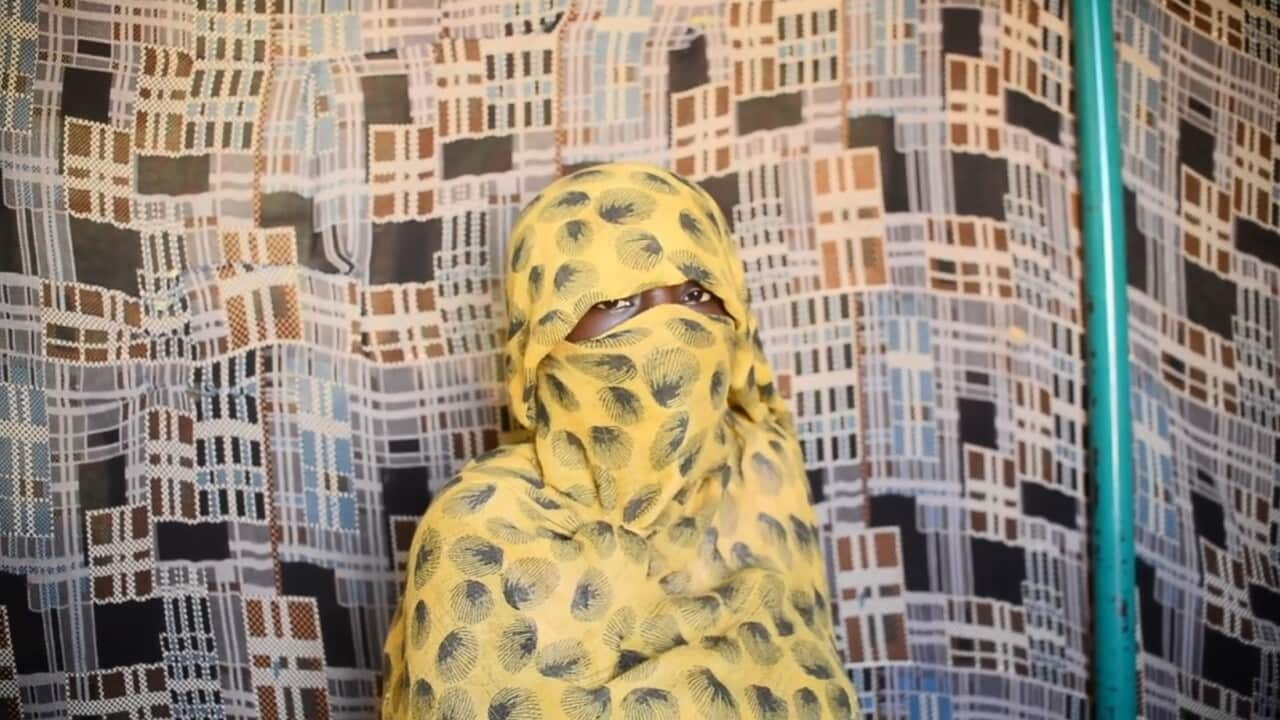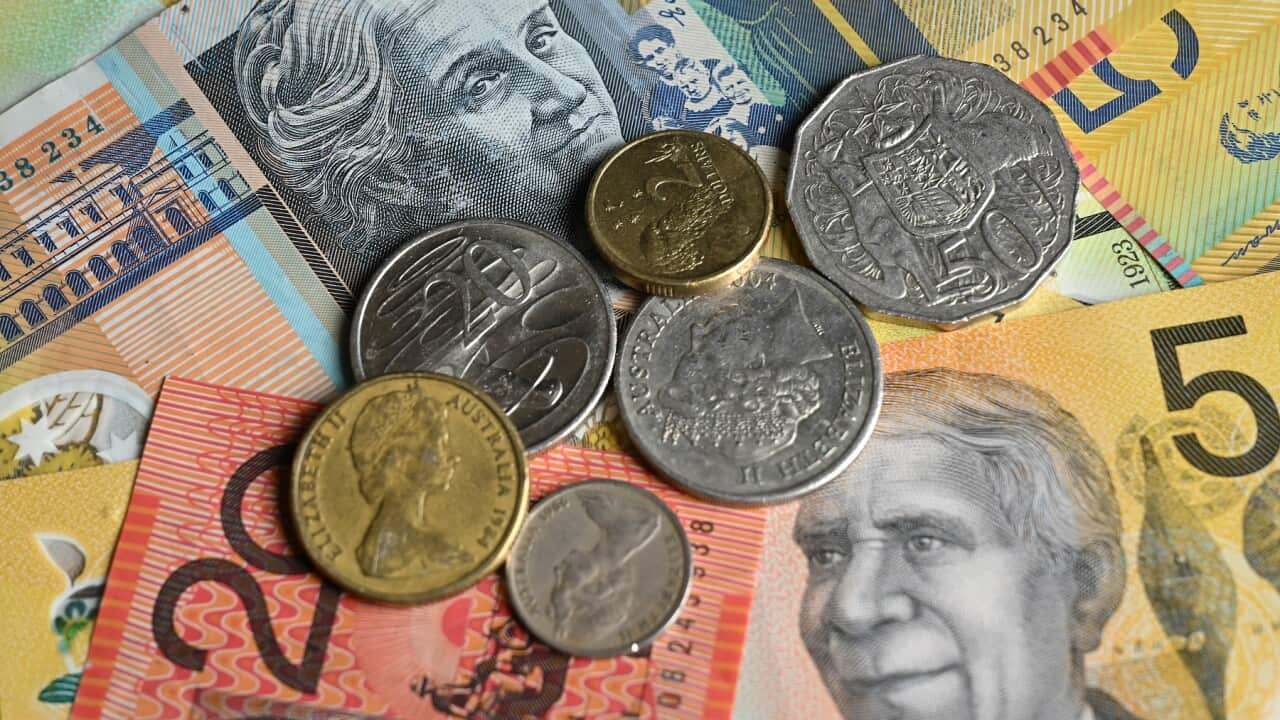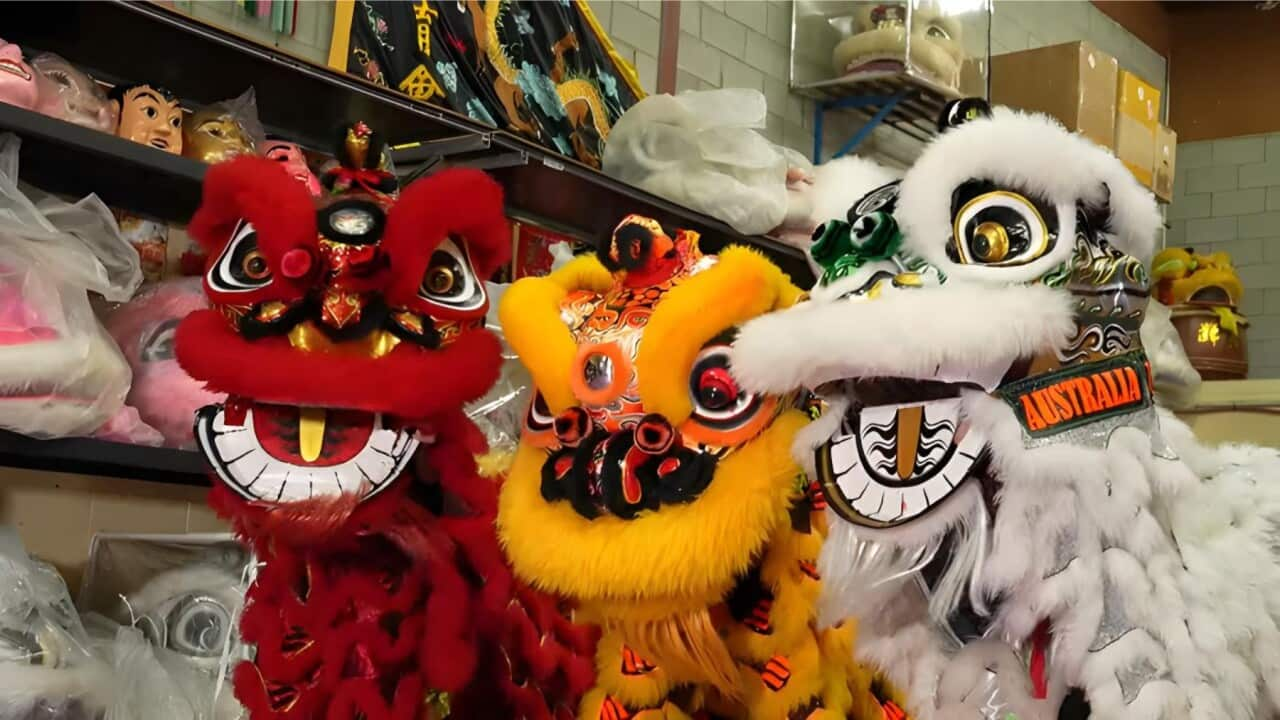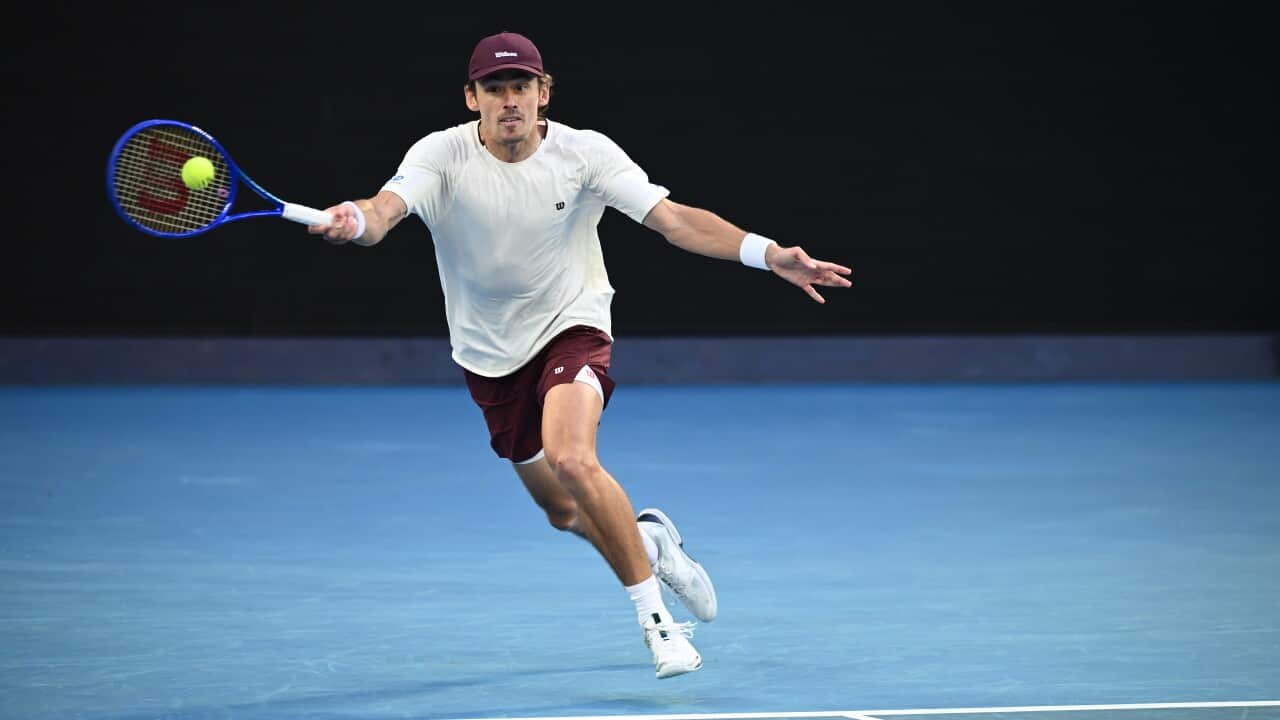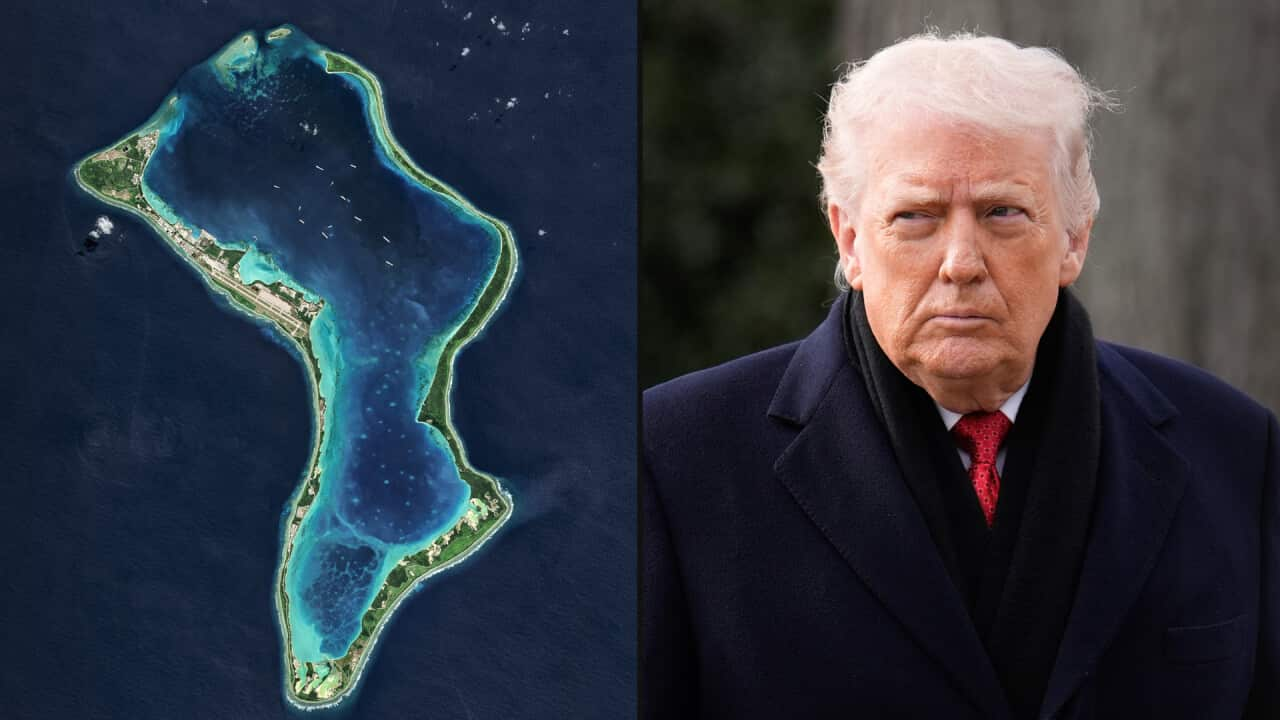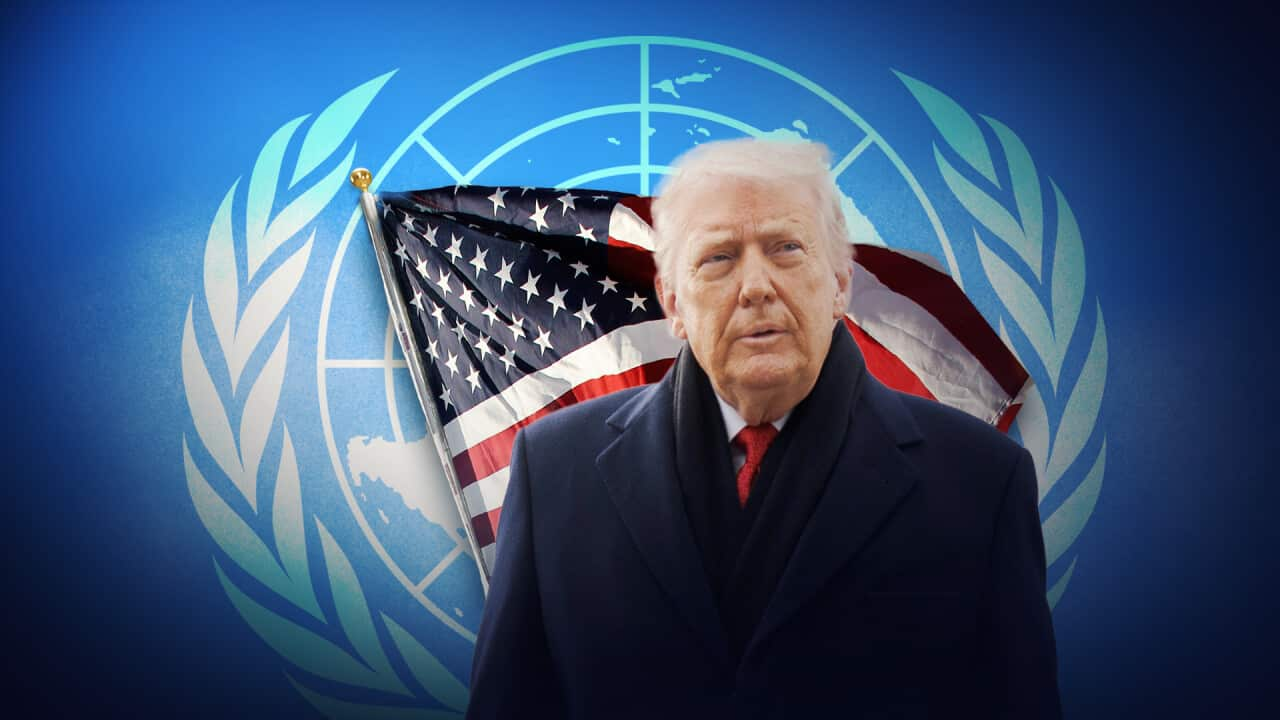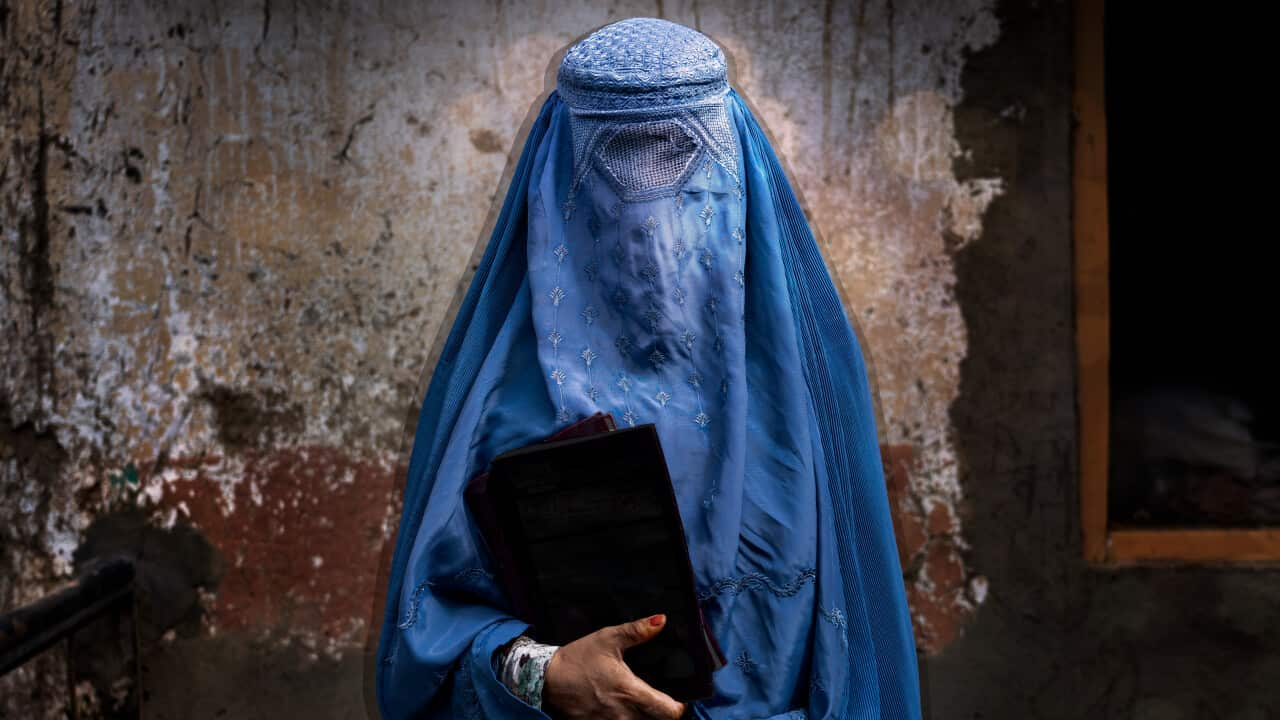Listen to Australian and world news, and follow trending topics with SBS News Podcasts.
TRANSCRIPT
NEWSREEL:"At 10:58, the morning of August 9, the bomb was exploded above the city and in the towering mushroom Japan could read its doom. This was more than a routine bombing. It was the funeral pyre of an aggressor nation. The bomb had been purposely exploded high so that the greatest part of its radioactive material was dissipated in the stratosphere.”
It's been 80 years since the United States dropped atomic bombs on Japan's Hiroshima and Nagasaki.
And, it’s been more than three decades since the world’s last major nuclear test, and for many, it felt like that chapter of history was closed.
But this week, talk of nuclear weapons has returned to the world stage, as leaders in Washington, Moscow and Beijing trade words that echo the Cold War era.
But then a sudden shift from the US President.
It began in Miami, where US President Donald Trump raised eyebrows with comments about possible cooperation with Russia and China to de-nuclearise, even as all three nations continue to modernise their nuclear arsenals.
“We’re the number one nuclear power which I hate to admit because it’s so horrible. Russia’s second. China’s a distant third, but they’ll catch us within four or five years. Maybe work on a plan to denuclearise, the three of us? We’ll see if that works. ”
It was a rare hint of cooperation from a leader known for talking up US military might.
“We have the strongest military anywhere in the world by far. We’re investing one trillion in the United States Armed Forces this year, it's the biggest amount.”
The comments have fuelled speculation about whether the White House is considering new arms-control talks, or simply sending a message of power to its rivals.
In Moscow, President Vladimir Putin was quick to respond.
At a meeting of Russia’s Security Council, he instructed his top officials to prepare for the possible resumption of nuclear testing.
"I am instructing the Foreign Ministry, the Ministry of Defence, the special services, and the relevant civilian agencies to do everything necessary to collect additional information on this issue, analyse it within the framework of the Security Council, and make agreed proposals on the possible start of work on the preparations for nuclear weapons testing."
Defence Minister Andrei Belousov told the meeting that US actions justified getting ready for full-scale tests at Russia’s Arctic testing ground on Novaya Zemlya.
"We must maintain our nuclear potential in readiness to inflict unacceptable damage on the enemy under any circumstances, and act appropriately in response to Washington's actions in the interests of guaranteeing our country's security. Given the above, I believe it is advisable to begin preparations for full-scale nuclear testing immediately. The readiness of the forces and assets at the central test site on the Novaya Zemlya archipelago allows for this to be carried out within a short time frame."
In a meeting earlier this week with contractors who develop Russian weaponry, the Russian president confirmed that his country is continuing to develop its nuclear capabilities.
"Russia is now finally getting both the Burevestnik cruise missile with unlimited range and the Poseidon unmanned underwater vehicle with nuclear power units. All our plans are being fulfilled thanks to people like you and your colleagues."
President Putin added that Russia would still honour the global test-ban treaty, at least for now.
The global ban he’s referring to is the Comprehensive Nuclear-Test-Ban Treaty, or CTBT, a landmark agreement signed in 1996 to prohibit all nuclear explosions, whether underground, underwater or in the atmosphere.
One hundred and eighty seven nations signed.
Then-US President Bill Clinton, signed, but the U-S never ratified the treaty, and it has not come into force.
Still, it’s created a powerful international norm with no nuclear test explosions having taken place since 1992.
Heather Williams, Director of the Project on Nuclear Issues at the Centre for Strategic and International Studies, says any return to testing would be more about politics than science.
She adds that , as the US' nuclear arsenal is regularly assessed by government experts, there is no need for explosive tests.
“Really smart scientists at the national labs are using super-computers, lasers and other really advanced technology to make sure that the nuclear arsenal is fit for purpose and that it will do what it's supposed to do. They can do This without any explosive testing."
She warns that a single test by one major power could trigger a dangerous domino effect.
So where does this leave the world’s nuclear triangle?
President Trump hints at cooperation, President Putin prepares for testing, and China continues to expand its arsenal while keeping a close eye on both.
When Mr Trump last met President Xi Jinping, he combined friendliness with rivalry.
TRUMP: “And we’re going to have a very successful meeting, no doubt. But he’s (Xi) a very tough negotiator, that’s not good. We know each other well.”
JOURNALIST: “President, do you plan to sign a trade deal today?”
TRUMP: “Could be. We’ll have a great understanding. We have a great relationship. We’ve always had a great relationship.”
Behind the smiles, Beijing is pouring billions into new missile systems, nuclear submarines and hypersonic delivery vehicles, a quiet but determined build-up that is changing the global balance of power.
If any of these powers were to resume nuclear testing, the effects would go far beyond diplomacy.
It would undermine confidence in the test-ban treaty and unsettle U-S allies who still remember the fallout from Pacific and Kazakh test sites.
Environmental and health groups say even underground blasts risk contaminating soil, water and fragile Arctic ecosystems.
And politically, a new round of tests could reignite the global arms race that decades of negotiation worked so hard to contain.

